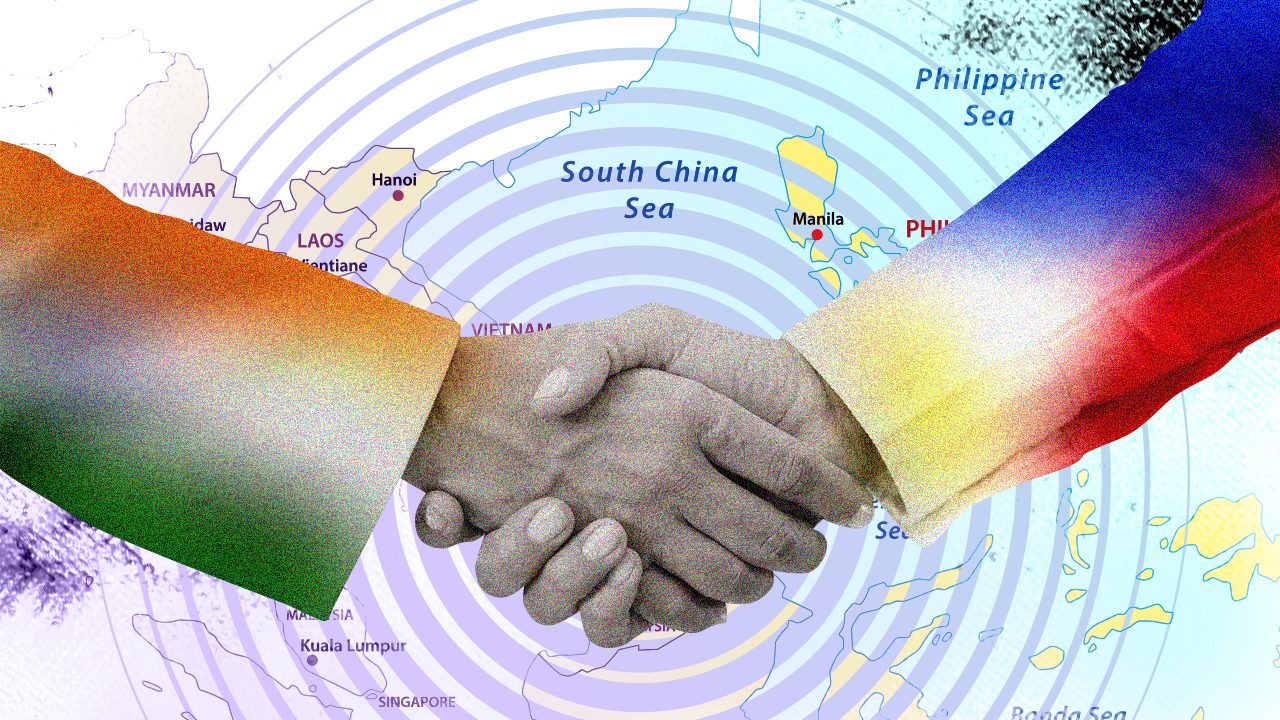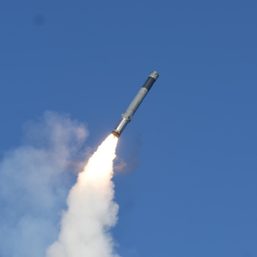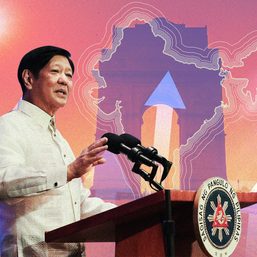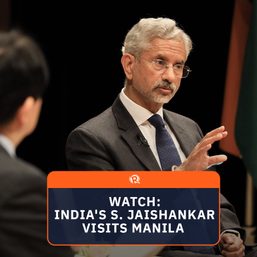SUMMARY
This is AI generated summarization, which may have errors. For context, always refer to the full article.

When Foreign Affairs Secretary Enrique Manalo was in New Delhi in late June to visit his counterpart, their meeting created new sparks. For the first time, India publicly endorsed the 2016 arbitral ruling on the South China Sea, supporting the Philippines’ victory against China.
In a joint statement, Manalo and External Affairs Minister Subrahmanyam Jaishankar “underlined the need for peaceful settlement of disputes and for adherence to international law, especially the UNCLOS and the 2016 Arbitral Award on the South China Sea…”
This is a far cry from India’s position in 2016 when it merely “noted” the award, akin to a shrug, although it stated its support for the general principles of international law like “freedom of navigation, over flight, unimpeded commerce…” and urged respect for UNCLOS.
India played neutral then in keeping with its non-aligned or “non-allied forever” stance. It is neither in the US bloc nor in the orbit of China. Some have described India’s foreign policy as “strategic autonomy” and, at times, “strategic ambiguity.”
While India’s support for the arbitral ruling came seven years late, it signified a bloom in the relations of the Philippines and India. It’s as if both countries failed to pay attention to each other through most of its 74 years of diplomatic relations – and woke up to compelling new realities that called for building closer cooperation.
Manalo’s visit was only the fifth time that the India-Philippines Joint Commission on Bilateral Cooperation or JCBC met. One could sense optimism in some of the accounts of the English-language Indian press. What was most striking was what the host of a television show said after interviewing Manalo. Sreeram Chaulia, a foreign affairs scholar, gushed that the Philippines is an “undiscovered gem in India’s Act-East diplomacy.”
(In 2014, Prime Minister Narendra Modi upgraded India’s decades-old “Look East” to “Act East” policy, a strategic arch that included cultivating economic and security relations with countries in the Asia-Pacific region.)
‘Momentum’
A number of factors have led to this newfound friendship.
Since 2020, when its long-running border dispute with China escalated, India has been tilting towards the West. It became part of the Quad or the Quadrilateral Security Dialogue – composed of Japan, US, Australia, and India – which held its first formal summit in 2021.
Joining the Quad was anchored on its Act East policy, part of India’s moves to counterbalance China’s influence in the region.
India’s economy has been thriving, making it the fifth largest in the world. It has zoomed past China as the most populous nation, with its 1.4 billion people. These are giving it more heft and clout beyond its borders.
On the side of the Philippines, which has been experiencing constant Chinese aggression in the West Philippine Sea, it is “seeing a convergence of priorities and opportunities…underpinned by India’s Act East policy…and the Philippines’ long-term focus on diversifying international partnerships,” Ambassador Teresita Daza told me in an interview. “At the same time, evolving geopolitical dynamics compel us to deepen defense and security cooperation.”
Daza, who was a former ambassador to India, said that what Manila and New Delhi have going for them is momentum. In the past six years, both countries saw an “unprecedented level of political engagements, including at the summit level.”
High-level visits
Modi came to Manila in 2017 for the ASEAN-India summit, the first visit of an Indian prime minister to the Philippines in 36 years. He and then-president Duterte held a meeting on the sidelines of the summit.
Duterte, in return, visited India in 2018 for the India-ASEAN commemorative summit where the two leaders met again. This was followed by then-defense secretary Delfin Lorenza’s visit for the first-ever bilateral defense ministerial meeting.
The pandemic halted the high-level visits. It was only in 2022 when these resumed: Jaishankar flew to Manila for a meeting with then-foreign affairs secretary Teodoro Locsin Jr. after which Locsin visited New Delhi to speak at the Raisina Dialogue, India’s premier conference on geopolitics. There, the two foreign secretaries met on the sidelines of the Dialogue.
The most fruitful, so far, has been Manalo’s recent visit. Apparently, it was the Philippines that nudged India to manifest its change in position on the arbitral award as reflected in the joint statement, according to a report from The Wire.
The relationship, as such, is now “infused with new energy,” Manalo wrote in an opinion piece published in the Indian Express.
BrahMos & maritime exercises
What also contributed to this “new energy” was the Philippines’ purchase of the $375-million BrahMos supersonic cruise missile system in 2022, an India-Russia joint venture. It was a first for both countries: the Philippines was the first country to buy this defense equipment from India and this was the first major military export by India. Delivery is expected this year.
Another first happened in the seas as India and members of the ASEAN held joint maritime exercises in May: the harbor phase was conducted in the Changi Naval Base in Singapore followed by the sea phase in the South China Sea.
Actually, in 2019, the navies of the Philippines, India, US and Japan got together in “one of the most significant multilateral naval engagements in recent times” when they sailed in the South China Sea for the first time. It was a quadrilateral show of cooperation.
On the bilateral level, there’s more to look forward to as next year will mark the 75th anniversary of Philippine-India relations.
Let me know what you think. You can email me at marites.vitug@rappler.com. – Rappler.com
Add a comment
How does this make you feel?





There are no comments yet. Add your comment to start the conversation.